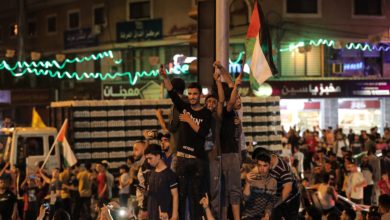On Dec. 24, government forces loyal to outgoing Yemeni President Ali Abdullah Saleh fired on hundreds of thousands of peaceful protesters.
As marchers arrived in the capital city of Sana’a, forces from the Republican Guard opened fire with automatic weapons, tear gas and water cannons. After hours of clashes, 13 protesters lay dead while hundreds more were injured. (Yemen Times, Dec. 25)
In spite of the brutal show of force by the government, the following day tens of thousands more courageous demonstrators defiantly marched past the offices of Vice President Abed Rabbo Mansour Hadi, denouncing him as a “tool in the hands” of Saleh.
The Yemeni opposition movement nearly unanimously rejects a recent transfer of power deal brokered by the U.S./U.N.-backed Gulf Cooperation Council that would grant Saleh and his family immunity from prosecution. They instead want Saleh prosecuted for the hundreds if not thousands of Yemeni deaths at the hands of his government.
On Dec. 20, approximately 2,000 Life Marchers left the city of Taiz to protest the GCC deal. Each day thousands more joined them. By the time they had reached Naqeel Yasleeh, just 60 kilometers outside Sana’a, the demonstration had swelled to over 100,000 people. Ultimately, as the marchers reached their final destination in Sana’a, hundreds of thousands more joined them, eventually reaching an estimated 500,000 people according to organizers. (Yemen Times, Dec. 25)
“This is truly a historical day, we shall kiss the feet of those who came all the way from Taiz to reclaim our revolution after it was hijacked by the politicians,” said protester Mohammed Fare’e. (Yemen Times, Dec. 25)
In response to renewed outrage at the attack on the Life March, Saleh said he intended to leave Yemen. The Obama administration initially stated that it would accept a request from Saleh to enter the United States; however, in response to increasing political pressure it is now weighing the ramifications of that decision. [On Dec. 31, the Associated Press reported that the president had decided to remain in Yemen, according to Mohammed al-Shayekh, a leader of Saleh’s People’s Congress Party.]
The U.S. government claimed it would only allow Saleh to enter the country for “legitimate medical treatment” for injuries sustained in a bombing attack on his compound last spring. However, a recent statement by Saleh contradicts that claim.
“I will go to the United States, not for treatment, because I’m fine, but to get away from attention, cameras and allow the unity government to prepare properly for elections,” Saleh said. (Washington Post, Dec. 27)
Reportedly, as many as 20 people have been injured in street fights between members of the Islah Party, which signed on to the GCC deal, and protesters camping at Change Square who oppose the deal.
In spite of Saleh’s vow to relinquish power, so far very little has changed in Yemen: Saleh continues to be referred to as “his excellency the president” by the state-run media and regularly weighs in on the country’s political decisions; his vice president, overwhelmingly viewed as a mere puppet, still holds power; his son Ahmed heads the Republican Guard while his nephew Yahya is in charge of the Central Security forces, two institutions directly responsible for some of the worst atrocities committed since the beginning of the mass protest movement in February 2011.
Meanwhile, a wave of strikes by government workers are demanding that Saleh’s relatives and associates be removed from their government posts and be put on trial.
So far in 18 state agencies workers have locked the gates and then stormed the supervisors’ offices.
“This is the real revolution, the institutions revolution,” said Mohammed Gabaal, a 40-year-old accountant who is on strike. “The president has appointed a ring of corrupt people all over government agencies.” (Washington Post, Dec. 28)
The strikes began Dec. 19 when workers at the national airline, Yemenia Airways, demanded that Saleh’s son-in-law, Abdel-khaleq Al-Qadhi, the director, be fired and charged him with robbing the company’s assets, leading it to bankruptcy. Al-Qadhi has been suspended from his position.
It is clear that the Yemeni people see through the smoke-and-mirrors act that the United States and its junior partners in Europe and the Middle East are attempting to perpetrate against them. New political leadership without a fundamental restructuring of the state apparatus will change little to nothing. In order for any country to legitimately meet the needs of its people, independence from imperialist intervention is critical. U.S. out of the Middle East! Hands off Yemen!





